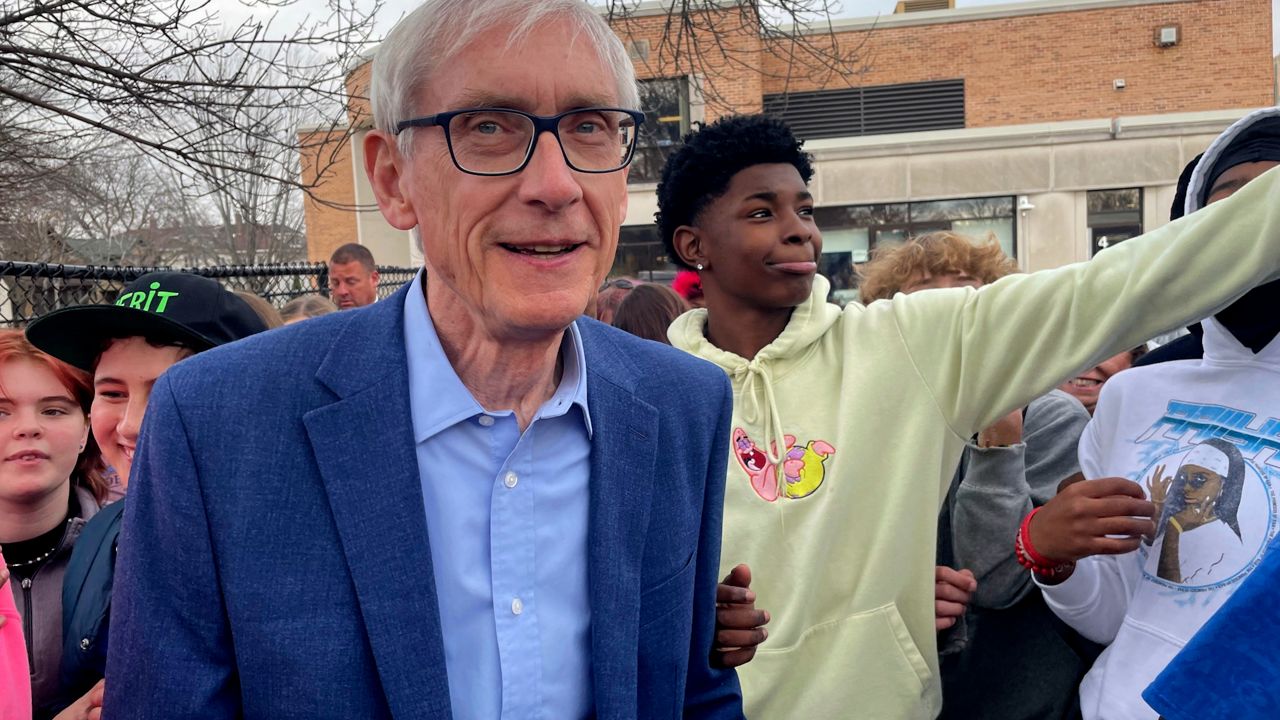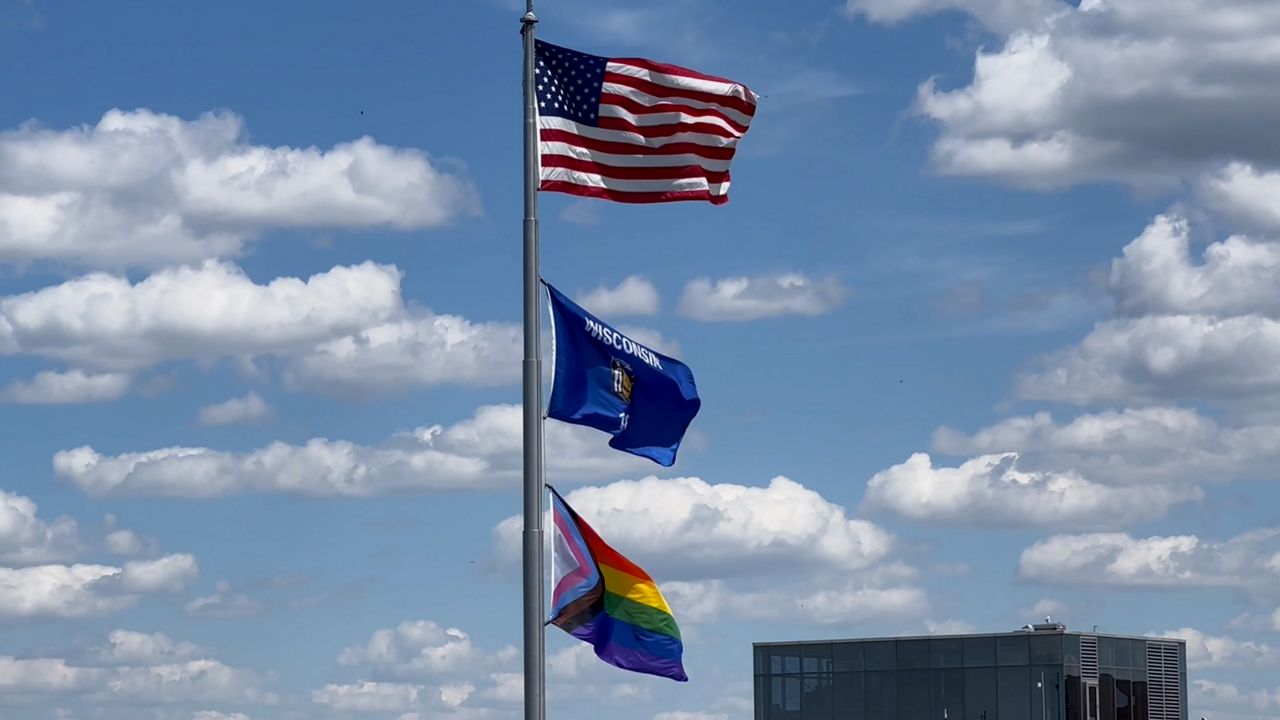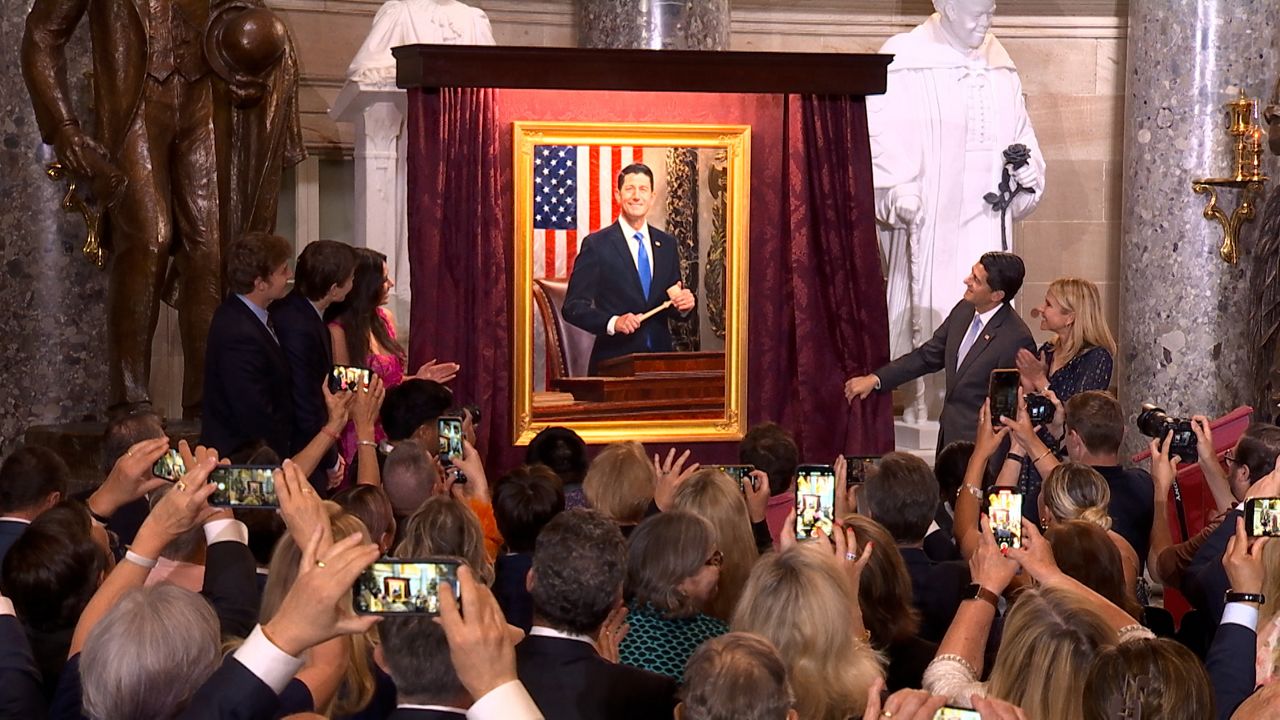MADISON, Wis. — This week, Wisconsin voters delivered Gov. Tony Evers a victory that was anything but slim. Evers, the Democratic incumbent, defeated Republican challenger Tim Michels by nearly three times the margin that he beat Scott Walker by in 2018.
As we try to unpack what happened in the governor's race Tuesday night, there are two areas that stand out: The age of voters and how each of the candidates faired on the central issues of their campaigns.
According to results from the AP VoteCast survey, Evers had a clear advantage over Michels among those age 18 to 44 years old, which made up more than a third of voters in Wisconsin.
For those 45 years old and older, Michels only had a slight advantage among the group. The governor had more support among younger voters than his opponent did with older ones.
Evers also had stronger support for the issues he ran on than Michels did.
The AP VoteCast survey showed the most important issue facing the country for Wisconsin voters was overwhelmingly the economy and jobs. However, Evers focused much of his campaign on abortion, which was only slightly more important to voters than the issue of crime, something Michels made a prominent theme of his candidacy.
On the issue of abortion, the U.S. Supreme Court overturning Roe v. Wade was an "important" issue for 82% of voters, among which Evers had a very clear advantage over Michels.
The bottom line is the governor “owned” the issue and had stronger support for a major piece of his campaign than Michels did.
Comparatively, Michels talked about the increase of violent crime rates a lot about on the trail. Often times, he would call Evers weak from “COVID to Kenosha” over and over and over again.
Michels was not wrong to think that issue mattered. In fact, 94% of voters said it was an "important" factor for them. However, the problem for Michels was that voters were divided, almost evenly, in their support between Evers and Michels on that issue.
As a result, it is evident Michels did not have nearly the support that Evers did on the issue he used as one of the tentpoles of his campaign, which could be another big reason why the governor came out on top.
The quick answer: Young people who care about reproductive rights.
Evers knew all along that more turnout would probably work out in his favor, but earlier this week, he told reporters that the issue of abortion might have given him the edge he needed.

“If we look at the data on who voted in this race, that maybe changed the dynamic, I think a lot of it had to do with people that are on our campuses,” Gov. Evers explained. “They cared about that issue. They cared a lot about that issue, whether it was a man or a woman.”
Evers said he remains confident he will prevail in a lawsuit challenging Wisconsin's abortion ban from 1849. While a lot of his supporters are counting on him to do something, Evers said he does not think change will happen legislatively. Rather, he said he feels a ruling will have to come from the courts.
Yes, the party in the White House normally struggles during midterm election years. However, that wasn't the case for Evers. Evers was the first Wisconsin governor in 32 years to win reelection in a midterm while a president from his party held office.
That is an impressive feat considering Democrats faced a lot of attacks and criticism over inflation from their Republican challengers.
The AP VoteCast survey showed the economy and jobs ranked as the most important issue facing the country among voters. Both Evers and Michels talked about the impact of rising costs on Wisconsinites during their time on the campaign trail, but who appealed to voters more?
Tuesday's results gave us that answer, obviously, but the numbers leading up to and during Election Day were also telling.
In total, 98% of voters said the increasing prices of gas and groceries was an "important" factor in voting for them, yet it was Evers who had a slight advantage on the issue over Michels, 51% to 48%. Perhaps coincidently, that turned out to be the same margin by which Evers ultimately won a second term.
After he cast his ballot on Tuesday, Evers said inflation would be a top priority if reelected. He told reporters he wanted to take action before the election, but blamed Republicans for not wanting to give him a so-called “win.”
“It was about making sure that we can cut income taxes for middle class folks and get rid of the minimum markup law, and also have some tax credits around child care,” Gov. Evers explained of his proposal. “All of those things are doable, and it will make life better in the meantime for Wisconsinites.”
Regardless, the governor seems to be optimistic he can get those things done with a new biennium approaching in January.
During a Wednesday press conference after his victory, Evers told reporters he hopes to be less of a goalie who blocks bills over the next four years, and would prefer to get Republican leaders, who control the legislature, to work with him.










